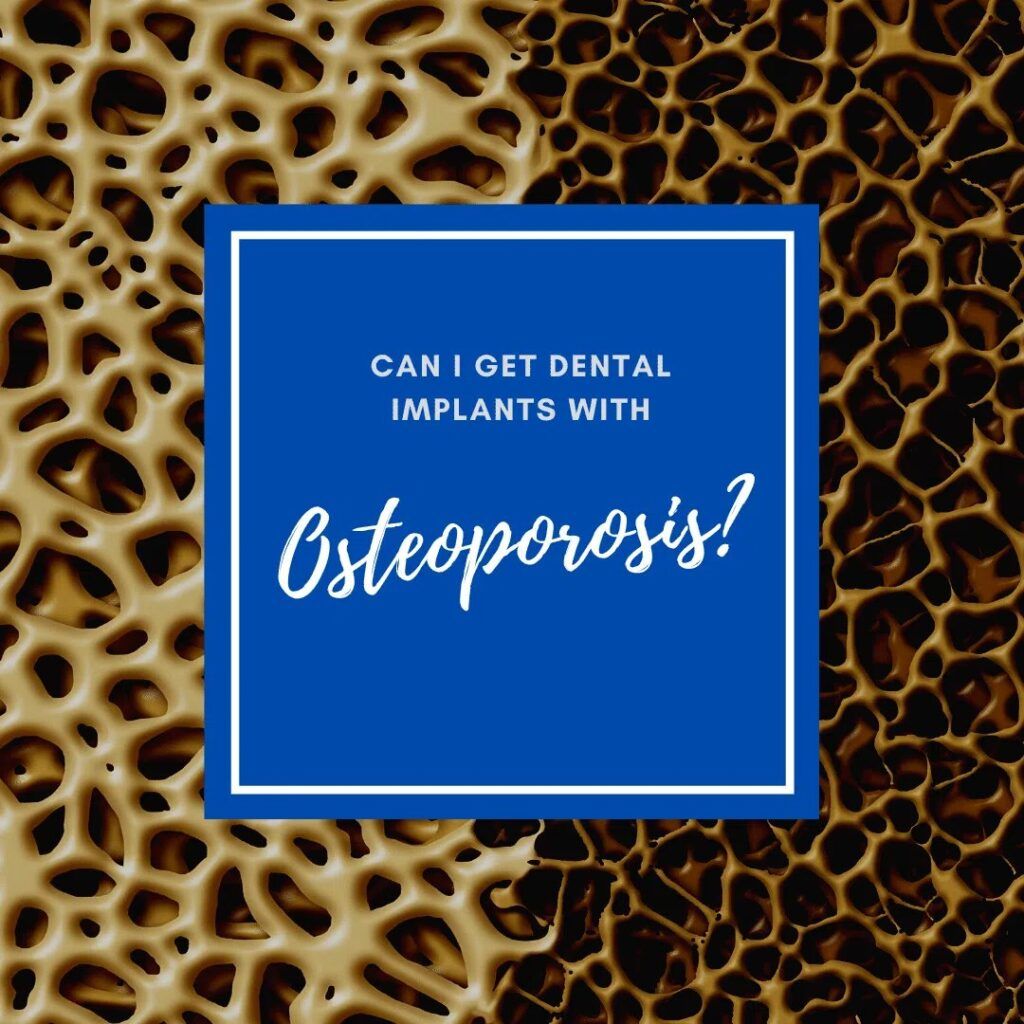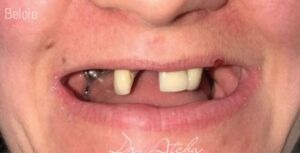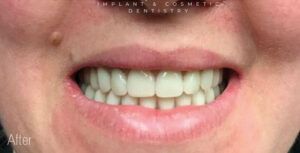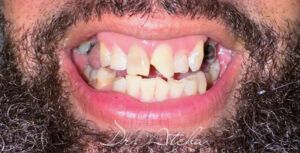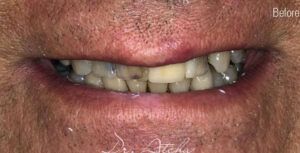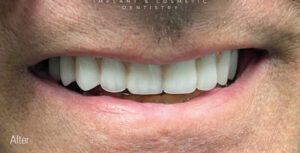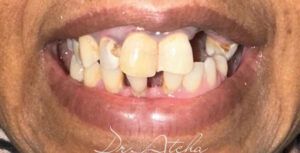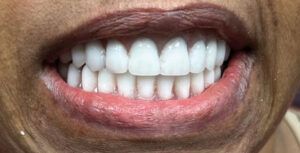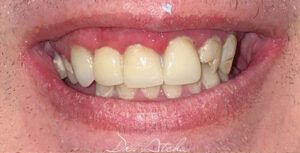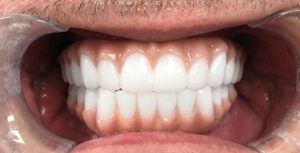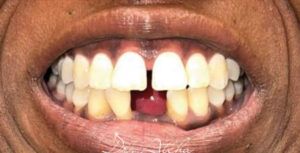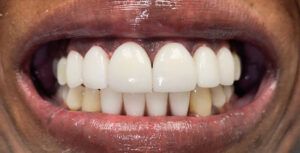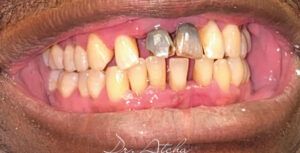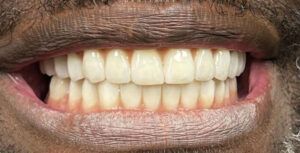According to the National Osteoporosis Foundation, 1 in 2 women and 1 in 4 men over the age of 50 are affected by osteoporosis. Osteoporosis is a bone disease that occurs when the body loses too much bone, makes too little new bone, or a combination of both. In fact, the word “osteoporosis” literally translates to porous bone, since bones affected by osteoporosis resemble a honeycomb with several empty chambers. As a result, the bones can become brittle and more likely to fracture easily.
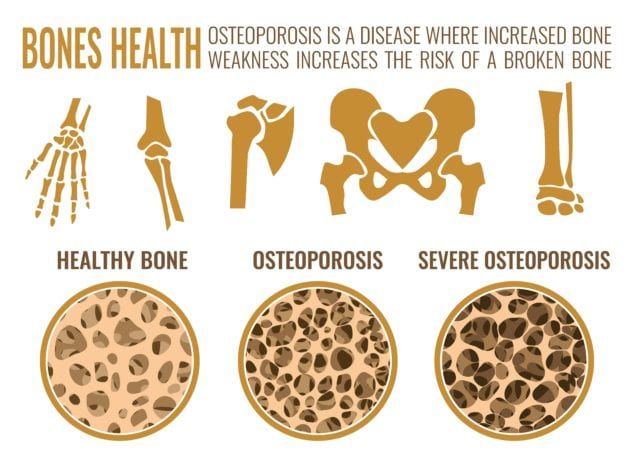
When it comes to dental implants, many people with osteoporosis are unsure if they can have dental implants safely placed. After all, dental implants are placed in the jawbone and must fuse with the surrounding bone in order to be successful. While only a consultation with an implant dentist can determine if dental implants are the right choice for you, it is important to note that people with osteoporosis can still get dental implants.
A systematic review entitled “Impact of Osteoporosis in Dental Implants” conducted by Gabriela Giro et. al evaluated over 900 articles dealing with osteoporosis and dental implant patients. The main aim of this review was to answer the questions: can osteoporosis be considered a risk factor for dental implant failures? And, does osteoporosis influence bone to implant contact rate? After reading through these various articles, it was concluded that there was no positive correlation between dental implant failure and osteoporosis. In fact, the 10.9% failure rate was consistent with other studies performed on patients without osteoporosis.
It is believed that this is due to the fact that the success of dental implants are based on more than systemic factors, rather they are affected by the condition of the gums, the number and distribution of implants per arch, occlusion, and bite forces. It is also believed that osteoporosis affects the jawbone differently than it does other bones. Although fractures from osteoporosis can occur in any bone, they predominantly occur in the hip, vertebrae, and wrist. This could indicate that osteoporosis affects bones differently, however there are no conclusive studies proving this theory.
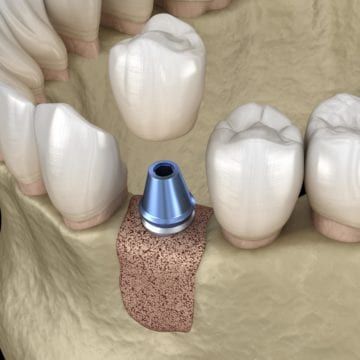
With that being said, there are still some precautions that need to be taken if you have osteoporosis and are having dental implants placed. For starters, it is highly important to see an implant dentist whose practice focuses solely on placing dental implants. While many general dentists are capable of placing dental implants, most general dentists lack the same type of expertise that an implant dentist can offer. When having implants placed with osteoporosis, this can make the difference between implant success and failure.
It is also essential to follow all of your implant dentist’s instructions before and after you have your implants placed. If you are taking medications for osteoporosis such as alendronate (Forsamax), risedronate (Actonel), ibandronate (Boniva), or denosumab (Prolia), then your implant dentist may recommend a two month drug holiday before your implant procedure. This is because these drugs have been associated with a rare complication known as osteonecrosis.
While this condition is extremely rare and only affects 1 out of 100,000 people, your dentist may still recommend a temporary drug hiatus to further decrease your risk. It is also important to note that osteonecrosis is not generally seen in patients taking these drugs at the low dosage used for treating osteoporosis. Rather, this condition is more likely to develop in patients taking higher doses intravenously when being treated for bone cancer. Nevertheless, it is a risk that people on osteoporosis drugs should be aware of.
Ultimately, the best way to determine if you should get dental implants with osteoporosis is to schedule a consultation with a dental implant dentist. During your consultation, they will perform an oral examination and take dental x-rays to determine the health of your jawbone. They will also discuss your medical history and list of current medications. The culmination of all this information will allow them to determine whether dental implants are the right choice for you.

